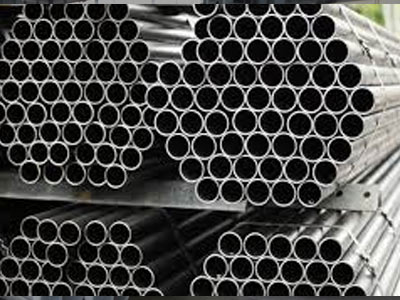
Precipitation hardening stainless steels are chromium and nickel containing steels that provide an optimum combination of the properties of martensitic and austenitic grades. Like martensitic grades, they are known for their ability to gain high strength through heat treatment and they also have the corrosion resistance of austenitic stainless steels.
 The high tensile strengths of “PH” stainless steels come after a heat treatment process that leads to precipitation hardening of a martensitic or austenitic matrix. Hardening is achieved through the addition of one or more of the elements copper, aluminum, titanium, niobium, and molybdenum.
The high tensile strengths of “PH” stainless steels come after a heat treatment process that leads to precipitation hardening of a martensitic or austenitic matrix. Hardening is achieved through the addition of one or more of the elements copper, aluminum, titanium, niobium, and molybdenum.
17-7PH stainless is a chromium-nickel-aluminum alloy that resists corrosion, distortion and scaling at elevated temperatures (up to approximately 800 degrees Fahrenheit). However, because 17-7H PH can be processed at very low temperatures, it has fewer issues with surface scaling and heat distortion than alloys that must be treated at higher temperatures. 17-7 PH is an economical choice for engineers in the medical, aerospace and energy and food processing industries who need to design high quality parts with good formability, high strength, minimum distortion after heat treatment, good corrosion resistance and with superior strength and fatigue properties.
Grade 17-7 PH is best used when manufacturing or the environment calls for moderate corrosion resistance combined with an unusually high degree of strength. Triton Pipes machines custom tubing and tubular components for medical devices and aerospace applications from this highly versatile alloy.
Type 17-7 PH Precipitation-Hardening Stainless Steel in sheet and strip forms provide valuable property combinations particularly well suited for aerospace applications. This special alloy also provides benefits for other applications requiring high strength and good corrosion resistance, as well as excellent properties for flat springs up to 600°F (316°C). 17-7PH provides high strength and hardness, excellent fatigue properties, good corrosion resistance and minimum distortion on heat treatment.
Corrosion resistance of Type 17-7PH stainless steel in all heat-treated conditions, like other types of stainless steels – will develop superficial rust in some environments. However, after exposure of one or two years, the amount of rust present is little more than that present at six months. It may be subject to cracking when exposed under stress in environments containing hydrogen sulfide.
Machinability of stainless steel grade 17-7 PH is rated at 75 % of B1112. On machining, this alloy displays long gummy chips and requires chip breakers. It is recommended that slow speeds and constant feeds while machining will provide excellent results. For heat treating stainless steel grade 17-7 PH, three important steps need to be carried out - austenite conditioning, cooling to transform the austenite to martensite, and precipitation hardening to condition TH 1050 or RH 950.